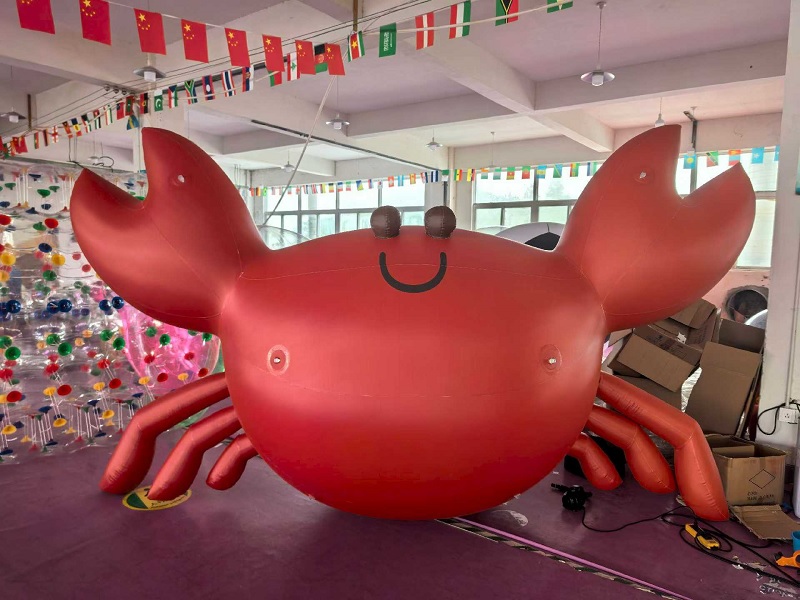---
Investment Potential and Profitability Analysis of Children's Play Areas in Shopping Malls
01 The Appeal of Shopping Malls
Shopping malls, known for their high foot traffic, concentrated customer base, and strong purchasing power, have long been regarded as ideal locations for investors. Many investors plan to open indoor children's play areas in malls to capitalize on this golden opportunity. But what are the actual prospects? Can it truly generate profits? How substantial is the profit margin? Below is a concise analysis.
◆ Prime Location and Customer Base
Malls are typically situated in prime, easily accessible locations with bustling crowds and a high concentration of affluent potential customers. Leveraging these advantages, indoor children's play areas hold significant growth potential. Despite high rental costs, such play areas and malls can establish a mutually beneficial relationship. By tapping into the mall’s massive foot traffic, play areas can effortlessly attract large numbers of visitors, ensuring high popularity.
◆ Family Leisure and Entertainment Demand
Malls are not just shopping destinations but also hubs for family leisure and entertainment. Here, parents and children can enjoy integrated services like dining, shopping, and entertainment, fulfilling diverse needs such as socializing, recreation, and parent-child bonding. Indoor children's play areas within malls have become hotspots for family entertainment, drawing crowds of customers.

◆ Potential of the Children’s Consumption Market
With shifting consumption attitudes among post-80s and post-90s parents, children’s expenses now account for nearly half of total household spending. As an indispensable "third living space" for urban families, malls naturally serve as key venues for family consumption—especially for children. Many malls actively develop children's play areas, recognizing a fundamental truth: *where there are children, there is money to be made*. By accurately targeting the family spending power behind children’s consumption and leveraging the spending dynamics between children and parents, malls maximize the potential for extended-stay spending. Thus, opening a children's play area in a mall not only targets a broad customer base but also promises thriving business. With effective operational strategies, parents are often willing to purchase membership cards, enabling quick cost recovery and sustained profitability.
02 Profitability and Return on Investment
◆ Revenue Structure of Children's Play Areas
Primary revenue streams include single-entry tickets and membership card sales. Ticket prices typically range from $4 to $16 per entry across regions, with $4–$12 being the most common (members enjoy discounted rates). For example, a 300m² play area in a second-tier city mall may charge $7 per entry. Membership options include entry-based cards, monthly, quarterly, semi-annual, and annual cards. In the initial phase, monthly and quarterly cards dominate sales; as the customer base stabilizes, semi-annual and annual cards become the focus.
◆ ROI Analysis of Mall-Based Play Areas
The "one-time investment, long-term returns" model of mall-based play areas attracts many entrepreneurs. Initial investments cover rent, play equipment, decoration, and staff wages. However, these costs translate into substantial returns later. For a 300m² play area, the initial investment typically ranges from $40,000 to $70,000.
Assuming a $70,000 investment, monthly revenue can reach ~$18,000. The first four months may face financial pressure during the payback period, but well-managed operations can recover costs within 1–2 months. Afterward, monthly net profits stabilize around $18,000. This is a conservative estimate; actual performance may yield higher returns.
Despite high upfront costs, strong profitability and stable customer flow enable rapid cost recovery and attractive profits.
Conclusion
Opening a children's play area in a mall offers not only vast market potential but also significant profits and ROI. Many successful operators expand their scale or open multiple branches after achieving profitability. For entrepreneurs who recognize this opportunity, now is the prime time to act.
---
Contact US Catalogue Information
008613539990461 inflatable@bubble-wish.com Water Products Contact Us Terms&Conditions
Open 09:00 am - 06:00 pm / mon - Fri Land Products Blog&News Cookie Policy
Copyright © Bubble Wish 2023-2025 Privacy policy Return Policy





